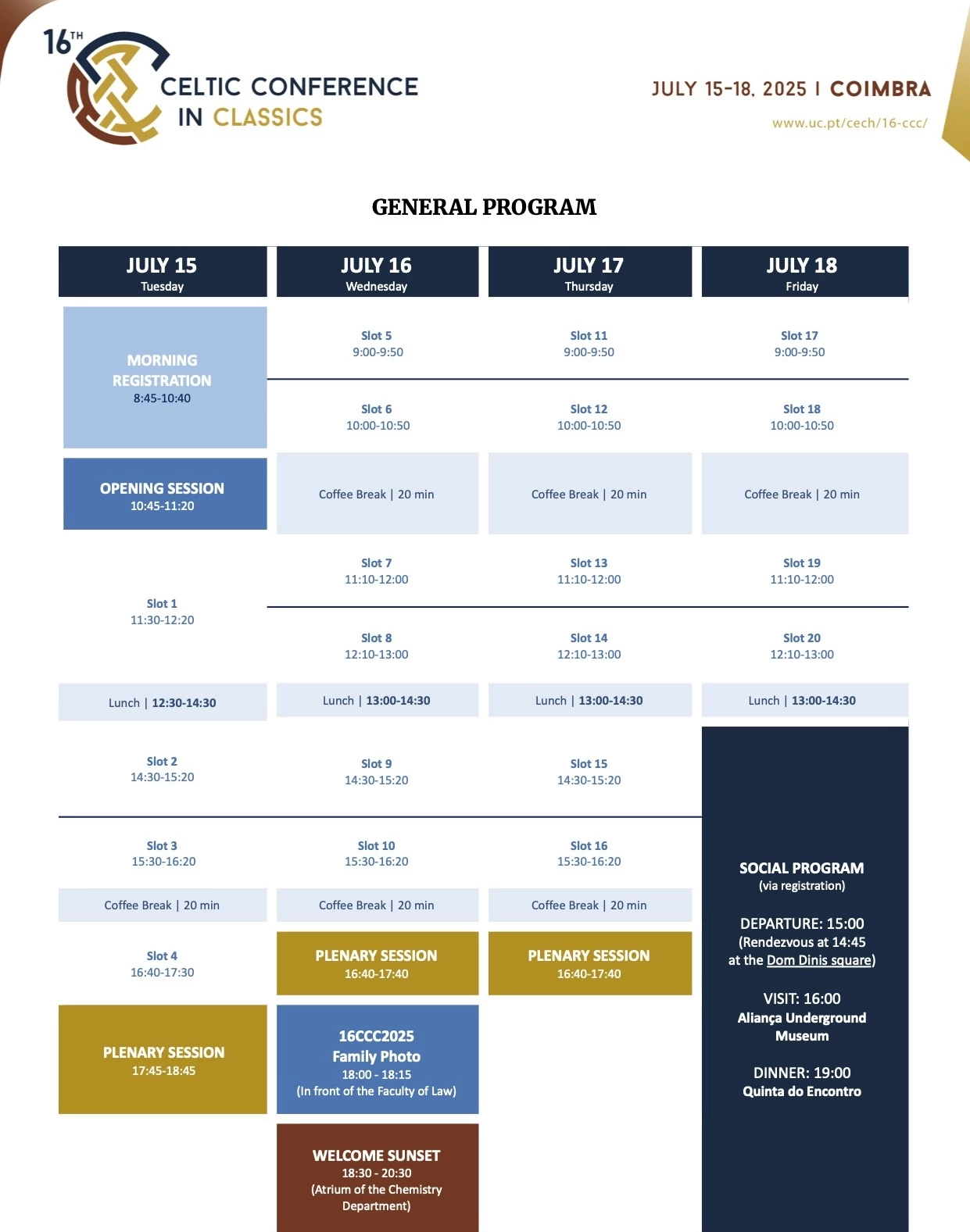Before the Conference
Recruiting a panel
In our experience a very effective model in general is the panel with two organizers, a younger one (whose original idea the panel may well be) and a senior one. Each will contribute to recruiting the balance of youth and experience that a panel usually needs in its speakers. Even the most experienced scholars and organizers do well, at the earliest stages of recruitment, to seek advice from trusted (and especially overseas) colleagues in their field, about who – in the world – should be invited.
The title of a panel should perhaps err on the side of precision. Potential speakers may be put off by the appearance of over-generality in the subject matter. There is, on the other hand, an art in identifying precise themes – and especially methods – which are shared by apparently disparate fields.
The wording of initial invitations to speakers is a delicate matter. Here the input, and influence, of a senior colleague may be especially valuable. Where a particularly promising colleague accepts, organizers may wish immediately to offer them a special input, as in recommending an additional speaker or in chairing a session.
Where organizers are thinking of eventually making a collective volume based on their panel, the number and length of the initial, oral contributions is especially important. A panel of 25 excellent colleagues poses a problem. Papers will tend, at least initially, to be too short to be properly developed or assessed. And publishers commonly refuse huge multi-author volumes. Appraising and addressing the characteristics of 25 different authors is a burden for any editor, and huge books are usually uneconomic – or inaccessible because of their price. From experience, the CCC recommends papers of 35-40 minutes, which means a maximum of some 15 speakers per panel. On the other hand, panels designed more as workshops than as a step towards a collective volume may have fewer problems with multiple short papers.
Once invitations to potential speakers have gone out, almost everyone who does eventually participate says 'Yes' firmly and within a few days of receiving their invitation. Equivocation rarely turns out well, and long silence is the worst of omens. Invitees who pose special conditions, such as 'I would only be able to speak on the Thursday', very often generate other difficulties later and quite often end by cancelling entirely.
In the months between a speaker’s acceptance and the event, organizers should send to each a circular message or two, not just to give news but also to reassure and check that all is well.
Calls for papers
If you issue a CFP, we’d suggest you do it fairly late in the recruitment process, by which time already-existing acceptances allow organizers to see which topics are well and less-well covered.
Conference timetable schedule for panel organizers
Panel organizers should utilize the template below for scheduling. All slots should be 50 minutes in length to allow those who wish to move between panels. Panel organizers may divide one 50-minute slot between two speakers (so that the slot contains two short papers, each followed directly by a brief question session — e.g. 20 minutes + 5 minutes, paper and questions).
When the results of the call for panels are announced, we shall send this timetable as an editable file so that the organizers can arrange their panels.
Handouts and PowerPoint
Panel organizers are invited to urge speakers to limit themselves to short handouts or light to moderately full PPT presentations. The conference organizers will not print the handouts, which should be made available in digital form before the event.
Organizers should also advise speakers with PowerPoint presentations to check them on the actual equipment in advance, wherever possible. Repeated failures with the technology in real time disrupt the reception of a paper. Chairs will have the power, after significant time has been wasted, to require speakers to proceed without PowerPoint.
At the conference:
Running a panel
Please be politely ruthless about keeping speakers to time.
Offering the chair, at some sessions, to deserving others is an excellent way to help cement goodwill and a sense of shared venture. In the best cases, this leads on to the creating of an enduring, informal team of researchers who may publish together over years.
Please protect time for discussion. To have feedback is a reason why many travel to distant events. And discussion is where cross-fertilisation between specialisms is most likely to happen. Because some papers can help to define a whole panel, with their ideas recurring valuably in session after session, it may be well – if such papers can be identified in advance – to try to put them on early in the event.
Erosion of numbers at start and finish of an event is common and worth resisting. It is particularly sad if speakers who have crossed oceans get a diminished audience because timetabled very early or very late in an event. One technique for resisting erosion is to put on some of the more attractive speakers at start and end. Please do not, however tempted by unforeseen and serious developments, alter the timing of speakers after it has been published.


